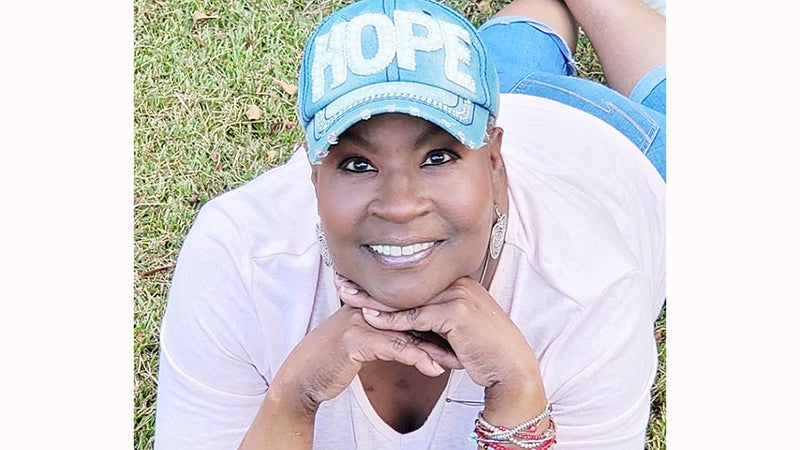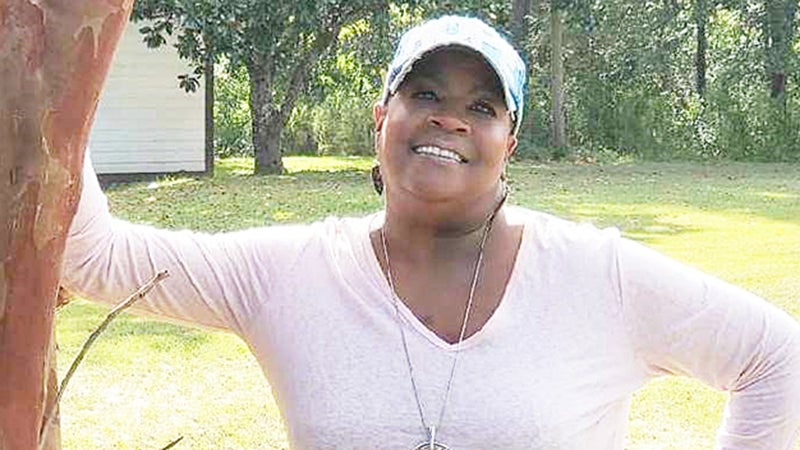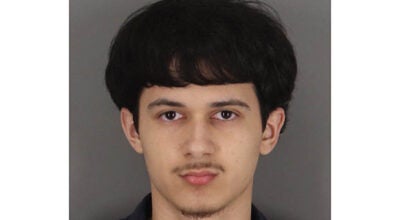BREAST CANCER PROFILE — Positive attitude guides woman’s battle, including 5 treatments a week
Published 12:38 am Friday, October 15, 2021

- Charmayne Hadnot is battling breast cancer with a positive outlook. (Courtesy photo)
|
Getting your Trinity Audio player ready...
|
Charmayne Hadnot has a slogan on her desk at work reminding her of strength and that she will survive.
The sign “You got this girl” has cheerful flowers to one side, the message of hope on the other.
And she is hopeful, speaking in an uplifting, always positive, tone.
A resident of Newton, Hadnot is battling breast cancer and makes the trip to Beaumont to Christus St. Elizabeth Outpatient Pavilion for treatment five times a week.
A Jasper native, the 57-year-old Hadnot was in the shower one day, not really looking for anything, and felt a lump that was “pretty apparent.”
She felt the lump on a Monday, made a doctor’s appointment on Tuesday and went to the doctor on Wednesday.
“Everything was uphill from there,” Hadnot said, adding she did not anticipate the diagnosis of Stage 2 HER 2A.
Her first chemotherapy treatment was March 16, and she underwent treatments every 21 days for a total of six sessions.
After the chemo was completed she underwent a lumpectomy.
“Right now I’m taking radiation, then another round of chemo,” she said. “Radiation is for 30 treatments five days a week.”
The first six chemo treatments were rough.
“But you just get back in the saddle and you make it,” she said.
While chemotherapy uses anti-cancer drugs that travel trough the bloodstream to each cancer cell, radiation therapy is the treatment of high-energy rays, or particles that destroy cancer cells, according to the American Cancer Society.
For Hadnot, the radiation wasn’t so bad.
“For me, the young ladies that do the treatment are very comforting and reassuring,” she said. “It’s not something you want to go through but if you have to deal with it they are a comfort.”
Comfort in crisis
To make the journey easier, Christus employs certified breast navigators whose job it is to help the patient through the process from step one onward.
Ruth Hatcher is one of those navigators.
She and her counterparts speak with the patient about mammograms or ultrasounds and explain why a biopsy is recommended and how it is performed.
They also make sure the patient’s doctor of nurse practitioner who ordered the mammogram or ultrasound is aware of the results. If a biopsy is ordered, they get the patient set up and, if there is cancer, are there to support the patient and answer questions.
“Breast navigators get in touch with the surgeon or oncologist or radiation oncologist and make sure the patient is cared for and does not fall through the cracks,” Hatcher said. “We follow them through their care, check on them and help them if there is something we can help with.”
It’s more than a job for Hatcher, who has been a nurse for more than 35 years; many of them spent the imaging department.
She has taken care of a lot of patients who had biopsies and saw their journey, which helps her better serve future patients.
“It’s not just the short term but the longer term,” she said.
Hadnot, she said, has always been positive.
“A lot of times I talk with her on the phone and I actually got to meet her a couple of weeks ago. She makes it easy to be a breast navigator,” Hatcher said. “She’s a very special person.”
Positive attitude, prognosis
Hadnot opted to go to Christus for her cancer journey after doing her own research and hearing good things about the facility.
Two navigators made calls to her, encouraged her and offered moral support.
“It made a big difference,” she said. “They’d call at least once a month and see how I was doing. Make sure you’ve OK. It’s a wonderful group. I don’t want to call any names because I don’t want to forget anyone.”
Hatcher said care and treatment for breast cancer has come a long way and there is a high cure rate if caught early, which is why it’s important to have a yearly mammogram.
Even older women, she added, need to do this.
Men can also have breast cancer and they too need to be aware of their bodies, she added.
Hadnot was asked if she had a message to share — and she does.
“Something I probably should have done was to get a mammogram done,” Hadnot said. “Do I regret it, not really but I would have done things differently. So get the mammogram and if you feel anything suspicious, it could be something or it could be nothing. If I had caught it earlier it cold have been different but I didn’t. All I can say is shame on me for not getting a mammogram.”
She is thankful for the wonderful job she has had for the past 29 years, where they are supportive and feel like family.
Her prognosis, she said, is “really, really good.”
“I’m not giving up. It’s not getting me. I’m getting it,” she said. “I have a slogan on my desk, you got this girl. I got it. This too shall pass. I’ll be fine.”







